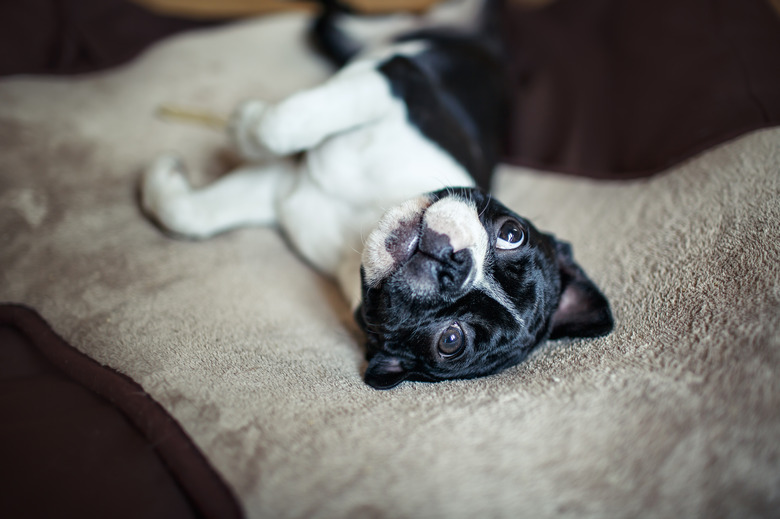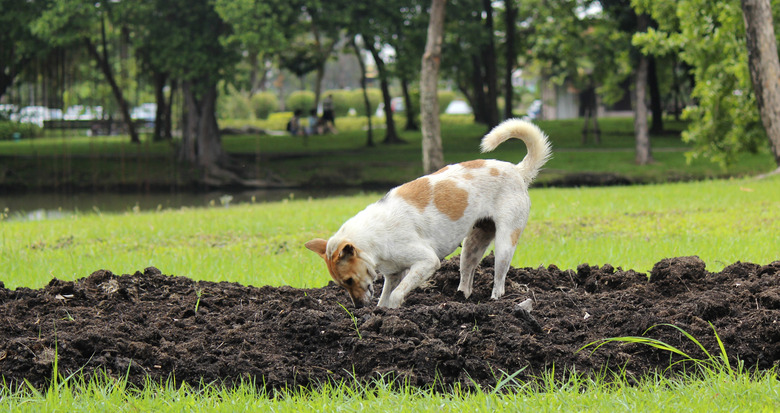Can Cedar Chips Be Toxic To Dogs?
Cedar chips are frequently used as filling for dog beds and also as bedding for outdoor doghouses. Cedar is safe if it's used in commercial dog beds but can pose a health hazard to dogs who are allergic to cedar bedding, or if the chips are ingested. While there are advantages to using cedar shavings for dogs, both as bedding and as ground or garden cover, the risks might outweigh the benefits.
Using cedar shavings for dogs
Using cedar shavings for dogs
Cedar is sometimes used to line the floor of outdoor doghouses. Many people believe that cedar repels insects. It might work in a small area like a closet or a clothes trunk, but there isn't real evidence that it works in general. The insect-repelling properties of cedar make it a popular choice to keep your dog comfortable and dry.
However, using cedar shavings around dogs can be problematic. If your dog is a chewer, avoid using cedar chips. Cedar bedding can cause gastric upset, abrasions to the mouth, or blockages if swallowed. Wood shavings, including cedar chips, should not be used for pregnant dogs or newborn puppies because it can result in bacterial transmission to either mother or babies.
It's true: Cedar smells pleasant and is moisture absorbing. Also, the smell of cedar repels insects, which makes cedar chips a popular choice for filling dog beds. Cedar shavings are effective for this use, but their strong scent can cause a reaction in dogs with respiratory issues or allergies. Also, prolonged contact with cedar bedding can cause contact allergies in dogs who are susceptible, resulting in prolonged itching and/or rashes. Although cedar-filled beds are not toxic to dogs, they should only be used for dogs who are healthy and free of allergies.
Using cedar bedding in the garden
Using cedar bedding in the garden
Cedar is frequently recommended for use as mulch in garden beds because it helps repel insects including fleas and ticks. However, cedar alone is not enough protection for your pet. While certain natural elements might help repel external parasites, all cats and dogs should be on a veterinary prescribed and approved flea, tick, and heartworm prevention. Ask your veterinarian about all of the options that exist.
Also, ingestion of garden cedar shavings can be an issue. Although cedar is nontoxic, avoid using large chips, especially if your dog likes to dig and chew — and most dogs do, increasing the risk of ingesting cedar. Consider using garden fencing to keep your dog from getting into the garden area. Contact your veterinarian if your dog ingests any wood mulch or cedar chips, especially if your dog is drooling or experiencing a loss of appetite.
Alternatives to cedar chips for dogs
Alternatives to cedar chips for dogs
Avoid using any dyed wood mulch in your garden. Dyes can leach into the ground and affect your dog if he digs there. Safe garden alternatives include rubber mulch, which can last a long time and looks like wood, recycled leaves, or natural wood. Pine needles can be used but, like wood chips, avoid letting your dog eat them. Separate your garden from your dog using low fencing or mesh wire as a precaution when using any mulch, and definitely avoid using toxic mulch entirely.
Avoid mulch toxic for dogs
Avoid mulch toxic for dogs
Several types of wood garden mulch are dangerous to use in homes with dogs and should be avoided, even if the garden is off-limits to your pup. Remember, chocolate is toxic for dogs, so anything from the cocoa plant is also. Cocoa mulch, black mulch, or mulch made from cocoa beans, shells, or hulls contains toxins that can make your dog seriously sick.
Mulch toxicity is serious. Convulsions, vomiting, seizures, and cardiac issues are possible side-effects of being exposed to toxic mulch. The ingestion of a large quantity of cocoa mulch can be fatal. Contact your veterinarian immediately if you suspect your dog has eaten cocoa mulch, even if he isn't immediately showing signs of toxicity.

